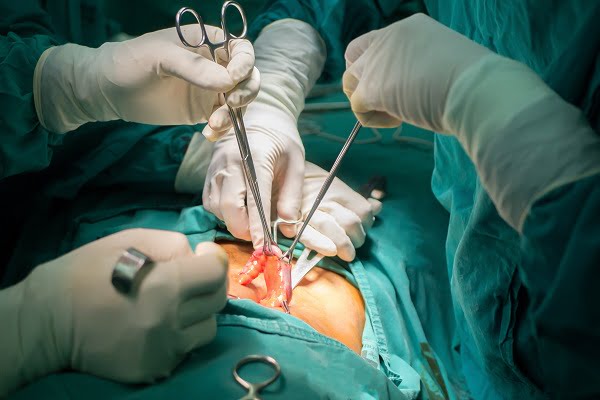What You Should Know About Appendectomy?
- Updated on: Jul 29, 2024
- 2 min Read
- Published on Apr 19, 2021

What is appendectomy surgery (appendix removal surgery)?
Appendectomy is the removal of the appendix through surgery. It’s a common emergency surgery that’s performed to treat appendicitis.
When is appendectomy operation needed?
This procedure is most often performed as an emergency operation to treat the condition of appendicitis. Some patients who are at risk of appendicitis and who are undergoing surgery of their abdomen for some other reason may also have their appendix removed so that appendicitis does not develop in the future. The appendix is a small, tube-shaped organ that is attached to the large intestine.
Why is appendectomy performed?
An appendectomy is often done to remove the appendix when an infection has caused inflammation in the organ called as appendicitis. The infection may develop due to clogging of the opening of the appendix with bacteria and fecal matter.
The most effective way to treat appendicitis is to remove the appendix. The appendix may burst if the condition isn’t treated fast. The bacteria and fecal matter within the organ may spread into the abdomen if the appendix ruptures. This may cause serious problems and complications. Read here about complications of appendicitis.
What Are the Risks of an Appendectomy?
An appendectomy is a simple and common surgery. But, there are some risks associated with the procedure, such as:
- injury to the organs in the abdomen
- excessive bleeding
- wound infection
- blocked bowels
- swelling and inflammation
- redness
- of the belly
While the above risks are associated with the appendectomy operation, however, the risks of an appendectomy are much less severe than the complications that can occur due to appendicitis when remained untreated. Appendectomy must be done immediately to prevent abscesses and peritonitis from forming.
How Is an Appendectomy Performed?
There are two types of appendectomy
- open procedure
- laparoscopic procedure
Your doctor chooses the procedure based on several factors, such as how severe is your appendicitis and based on your medical history.
How is an open appendectomy performed?
A cut or incision about 2 to 4 inches long is made in the lower right-hand side of the abdomen. The appendix is taken out through this cut. The incision is then closed after the surgery is complete.
Your doctor may prefer an open appendectomy procedure if the appendix has ruptured and the infection has spread to nearby areas. If you had abdominal surgery in the past, your doctor may still prefer the open procedure.
How is a laparoscopic appendectomy procedure done?
This method is less invasive. It does not require a large incision. Only a few tiny cuts are made. A long and thin tube called a laparoscope is inserted into one of the incisions. The tube contains a tiny camera for visualization. The surgeon looks at a TV monitor to see what’s going on inside the abdomen and to guide the surgical tools for performing the procedure of removal of appendicitis through one of the incisions.
When a laparoscopic surgery is being carried out, your surgeon may decide to switch to an open appendectomy if there is a need for it.
A laparoscopic appendectomy may cause less pain and scarring than an open appendectomy. Both the types of surgery have low risk of complications.












